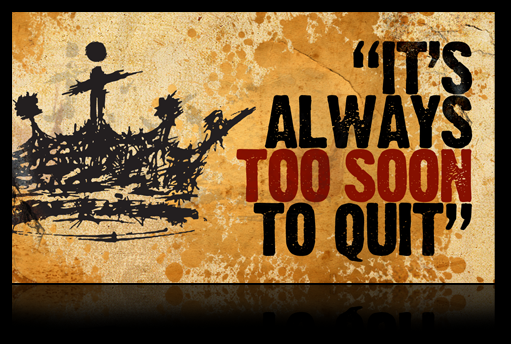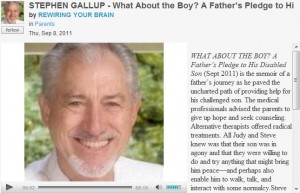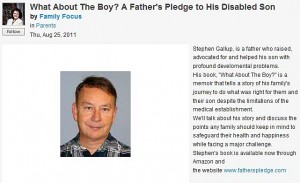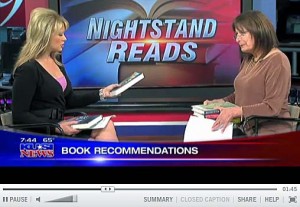A Look Behind the Scenes

I thought I’d depart from the usual subject matter to offer a glimpse into the life of an unknown writer who, against all odds, is striving to promote his book.
Here’s some of what I’ve been doing these last few days (not counting the efforts to keep my employer satisfied, my kids on the straight and narrow, and the sounds of disapproval from my spouse at no more than a low rumble).
- Preparing for a radio interview Tuesday morning
- Making a pitch to another radio outlet for an appearance on that show
- Offering a copy of my book to a new reviewer
- Contacting an autism researcher to comment on a presentation he’s making at a conference
- Exchanging emails with another autism researcher and sending him a copy of my book, just as an expression of gratitude for the important work he’s doing
- Critiquing a writer friend’s draft short story
This evening I look forward to returning to the book I’m currently reading for pleasure, John Scalzi’s Agent to the Stars. I read something else by Scalzi several years ago. My impression was that the idea behind that book was clever but the writing was uninspired. Based on that, I didn’t expect too much from this one, but still wanted to see what he would do with the subject: Friendly aliens have hired a publicist to help them make a good impression when they introduce themselves to Earthlings. Before proceeding, they need some help overcoming a negative: Briefly, they smell bad.
I identified with the aliens’ problem, since I am trying to present What About the Boy? in the best possible light. No, you will not find me saying that it stinks! Quite to the contrary, it’s the best and most important thing I have ever written. But who am I? The world doesn’t know, doesn’t particularly care, and that’s a major hurdle for anybody who has something to say.
Anyway, the first several pages of Scalzi’s book have been a very pleasant surprise. I read a lot but seldom get my hands on something that’s funny. I’m very appreciative when I do, because laughter is healthy—even when it causes me to wake up a sleeping spouse, who then expresses the disapproval alluded to above.
If you like to read—and I hope you do, because this site is as much about a literary effort as it is about the campaign to address a kid’s disability—then I’d be interested in knowing what kind of books you turn to for relaxation.








